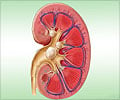The debate around eggs in the school feeding program has resurfaced this week, as the Madhya Pradesh government banned eggs in anganwadis.

The debate around eggs in the school feeding program has resurfaced this week, as the Madhya Pradesh government banned eggs in anganwadis. About 52% of children in the state are malnourished, but the only explanation for the ban is that Chief Minister Shivraj Singh Chouhan is a ‘pure vegetarian.’
With this, MP joins several states that have knocked eggs off their school feeding program. Maharashtra, Delhi and Gujarat have also recently banned eggs completely even after a 2011 Supreme Court verdict on right to food issued an order for states to serve prepared meals with a minimum content of 300 calories and 8-12 gms of protein each day.
The scientific findings are clear: eggs can be the ideal protein to battle the country’s record-breaking malnourishment. Protein is essential to build muscle, increase height, balance hormones and to repair tissue especially for growing children and lactating mothers.
The basis of nutrition policy in India has been cereals and pulses, the staple diet of Indians, and the chief food group to meet the minimum calorific intake. "Cereals give bulk and provide satiety, but in general, protein derived from vegetable foods is of less value to the body than protein derived from animal food," said Veena Shatrugna, former director of the National Institute of Nutrition.
Children are the future and they should not be died because of malnutrition and the laxity over implementing welfare programs of the country. Nutritional programs like serving of eggs to children in anganwadis and schools should never be banned.
Source-Medindia
 MEDINDIA
MEDINDIA




 Email
Email







